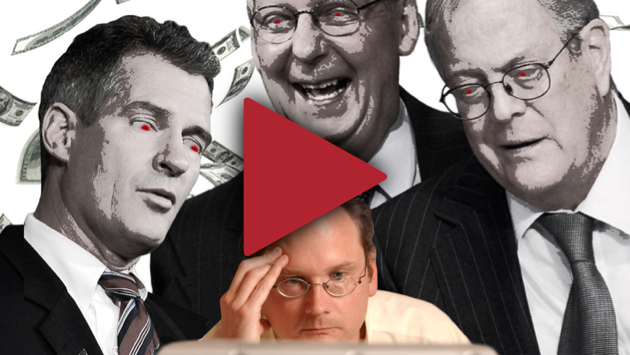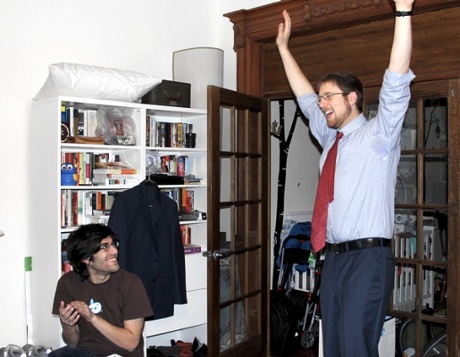The Good Fight #25: Lawrence Lessig, Aaron Swartz, and the Super PAC to end Super PACs (How challenge and tragedy inspired a mega-plan to fight money in politics)
Right about the time that Aaron was launching the campaign against SOPA, he was founding “The Flaming Sword of Justice” podcast (what would become “The Good Fight”), with Ben Wikler.
This episode covers how Aaron told Lawrence Lessig that he needed to go a different direction in life, and drop the copyright fight to fight corruption in politics.
From the show (at 11:09):
Ben Wikler: How did you start thinking about this broader fight?
Lawrence Lessig: In every one of my books, I had sort of pointed to this fact, and left it to the side. Even the first book, Code, I was like “here’s what the right policy would be, but, you know, forget it.” And then, as I was writing my last book on copyright, a book called “Remix,” I was in Berlin, and Aaron came to attend the Chaos Computer Conference. He came to visit me at the center where I was, and we had a long talk.
Ben: What year is this?
Lawrence: It was 2006. And so Aaron, you know, sort of said “How do you ever think you’re going to make any progress on these issues so long as there’s this corruption in the way that our political systems works? And I remember being kind of miffed because I wanted to be excited about what I was doing and he was basically the pouring cold water of reality on the fight.
Because, it’s true. We weren’t going to make any progress. But I defensively sort of said to him, “Look, you know, it’s not my field Aaron. I do internet policy, copyright. I’m not going to write a book about corruption of congress. It’s just not my expertise. And he said “Yeah, I get it, as an academic. But as a citizen. It’s your field as a citizen…”
…I was incredibly vulnerable to him. He was someone who I felt I had worked with for a long time. I’m not his father, but it was kind of relationship like that. And so, when your son says to you “Why can’t you’re not as good as you’re supposed to be?” It’s hard to say “because I can’t. It’s not my job.” I thought, “what is my excuse?” Did I really envision the next ten years of my life tweaking and perfecting the argument to show why copyright shouldn’t be extended. And I thought, “OK fine. I’ll give it up. I’ve got tenure. I’ll have money to feed my family. So yes, Aaron, you’re right. That’s what I should do, and that’s what I’ll do.

